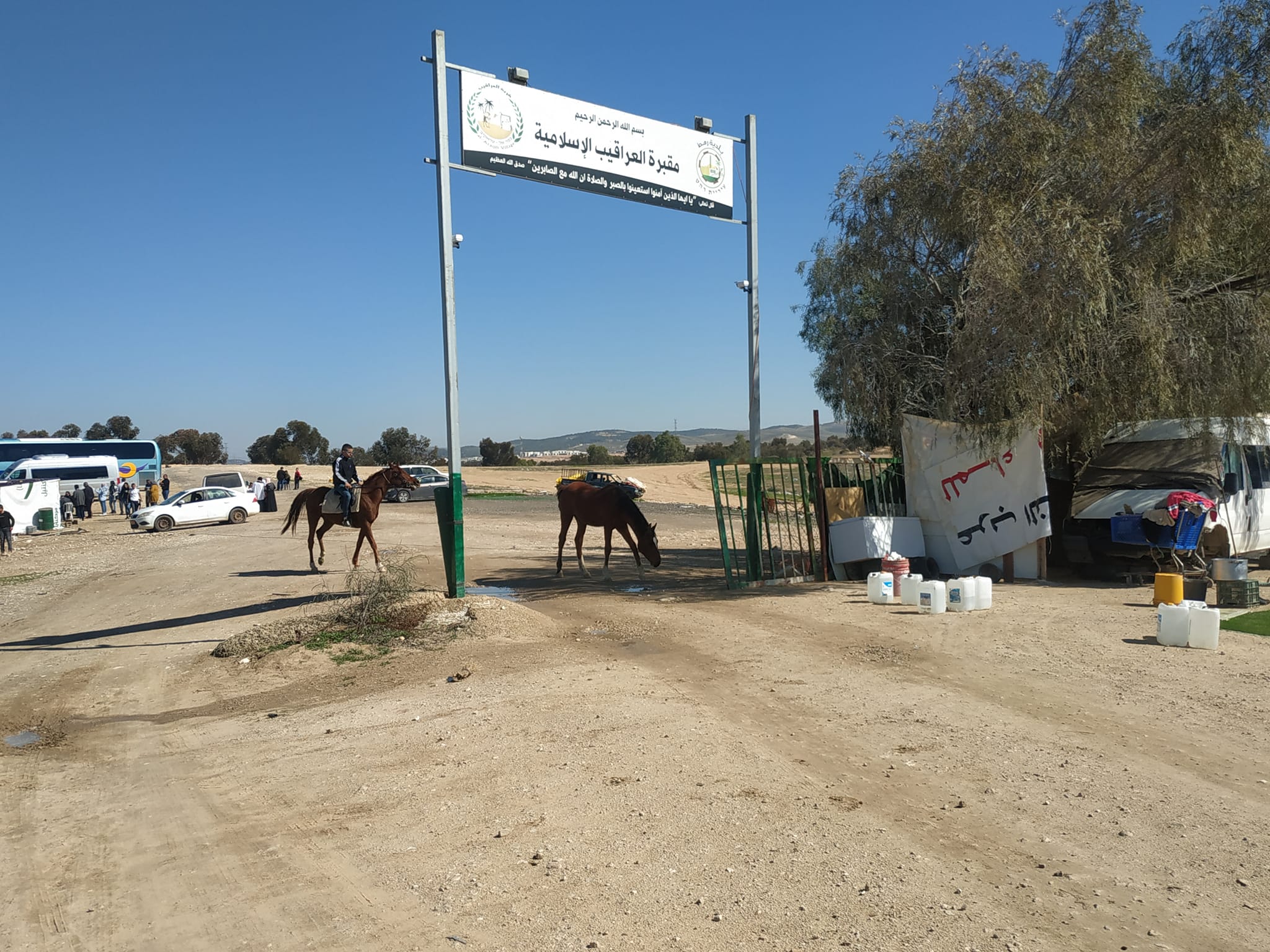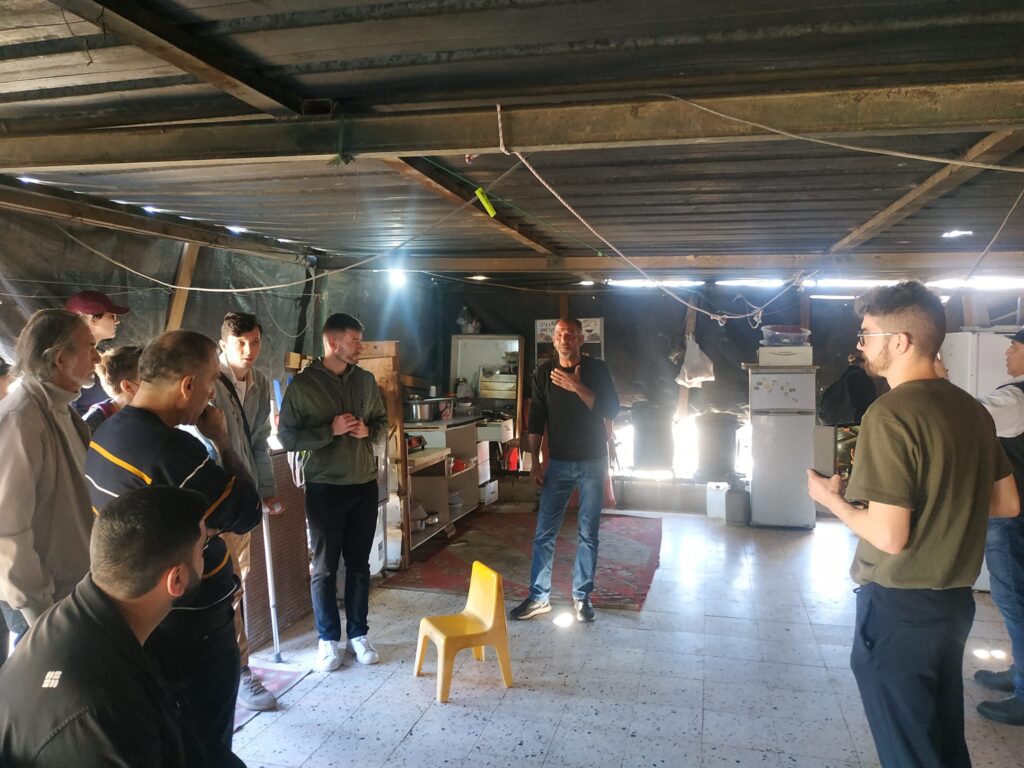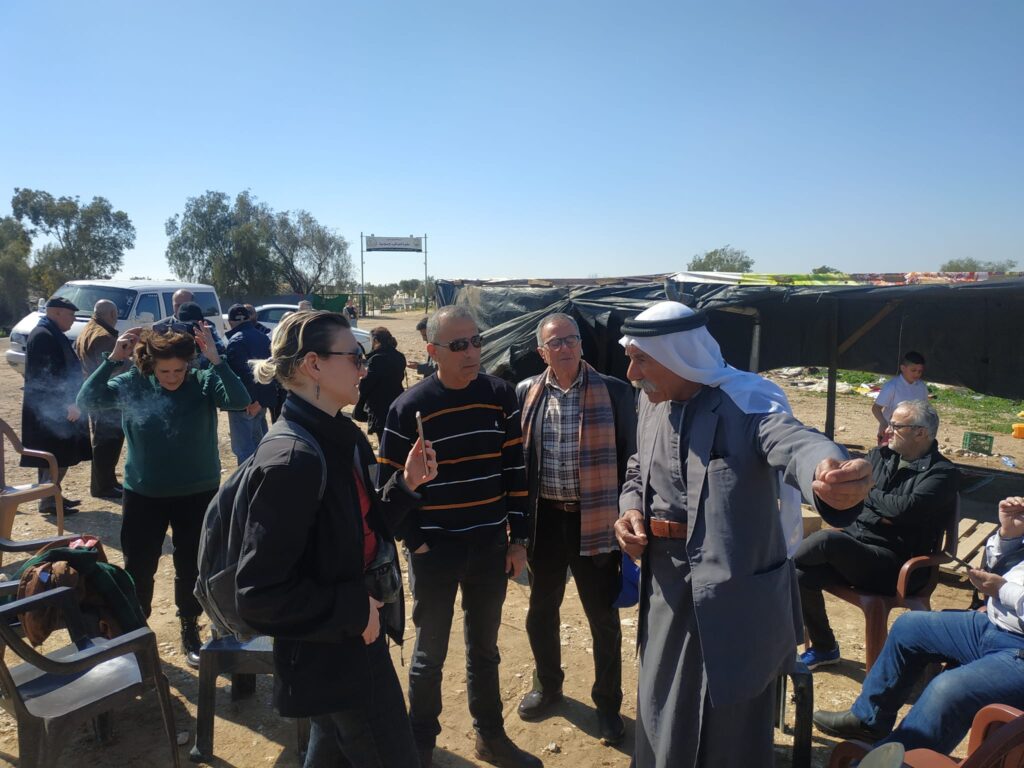
An information tour as a means of fighting
On February 12, the Mussawa Center and the NGODor Moriahorganized an informational tour of unrecognized villages in the Negev. The trip made it possible to familiarize Russian-speaking activists and journalists with the life of the Negev Bedouins living in unrecognized settlements.
To familiarize Russian-speaking Israelis with the difficulties and problems faced by Bedouins as an Arabic-speaking minority. Representatives from the Mossawa Center as well as Dor Moriah activists participated in the visit. Representatives of Russian-language media from Haifa and the North of Israel also traveled to the Negev.
Al-Araqib village by permission of the Ottomans.
The tour started with a visit to the village of Al Araqib. Bedouins claim to have lived in the area with the permission of the Ottoman Empire, then the British Mandate. But Israel kicked them out of the territory and designated their land as “ownerless” in 1950. Israel, for its part, claims that the village never existed here. The Bedouins were only allowed to graze cattle. And that the Bedouins in 1950 could not provide any land ownership documents. The Bedouins also refused to officially register livestock and plantings.
The entire Al Araqib settlement is a number of tents and vans. Minibuses, as movable and immovable property, both with and without wheels. The center of the settlement is the cemetery, where the very first grave dates back to 1914. The lack of houses is precisely the result of 197 attempts to demolish the village since 2010. It was from this village that the Bedouin riots began. Tree planting riots preceding the Tu bishvat holiday in February 2022. The tree planting is being done with money from the Jewish National Fund. According to locals, the tree planting is aimed at pushing the Bedouins off their land. The planting of trees, like the demolition of houses, is a continuation of the Israeli authorities’ policy. Before the first demolitions of the village in 2010, 400 people lived here. Right now it’s only about 20. Residents say the others live and work in the cities to support the community. Court rulings and imprisonment of Bedouin protest activists. Israeli authorities’ tools of struggle to weaken Bedouin resistance to the demolition of their homes.
Negev Steering Committee – history of the struggle
The delegation then visited the village of Sawwat al-Atrash, where Russian-speaking journalists and activists were met by elders of the al-Atrash family. The elders welcomed the guests and expressed their hope for wide publicity about the problems of the Negev Bedouins. Activists from the Negev Steering Committee briefed the audience on the current situation in the unrecognized Bedouin settlements. They reported that the State of Israel controls approximately 95 percent of the land. Negev Arabs own only 5 percent, and the ongoing conflict and persecution is aimed at driving out the Bedouin Arabs. Discrimination and racism play an important role in the decisions of the Israeli government. Jews in the Negev own farmland, factories, and thousands of dunams for agriculture and housing. Arab residents struggle to secure basic rights and basic services.
Arab land is confiscated for the construction of national projects. Such as the new railroad, the phosphate plant, the construction of 12 new Jewish towns.
Speakers said that following the recent events in the Negev, Prime Minister Naftali Bennett spoke out. In that speech, he threatened, “If the people of the Negev continue to protest, we will build a separation wall.” The speakers stated, “.Our demand to Prime Minister Bennett is simple and direct. Let the government end discrimination and racism and allow us to live in dignity in our land.“
Women of Lakkia: the struggle for rights.
The last stop on the informational tour was the Lakkia Women’s Association. The participants of the tour were welcomed by Dr. Amal Al-Sanea Hajuj, founder of the association. The Bedouin Arabs of the Negev have a natural right to live on their lands. This is their right that must be realized despite its deliberate neglect by the State for years. Many major projects in Bedouin settlements and towns were realized only because of the determination of the Negev residents. It is their resilience that ensures Bedouin access to basic human rights. Such as housing, electricity and infrastructure.
Huda Al-Sanea gave a detailed account of the association’s work in Lakkia. Women led an initiative to make and sell traditional Bedouin embroidery to increase women’s economic freedom.
Mossawa director Jafar Farah and Dor Moria head Igor Kaminnik constantly emphasize. Our organizations work to ensure that the rights of linguistic minorities are respected. Such visits to the Negev are intended to build connections and raise awareness of the problems of members of these minorities.


